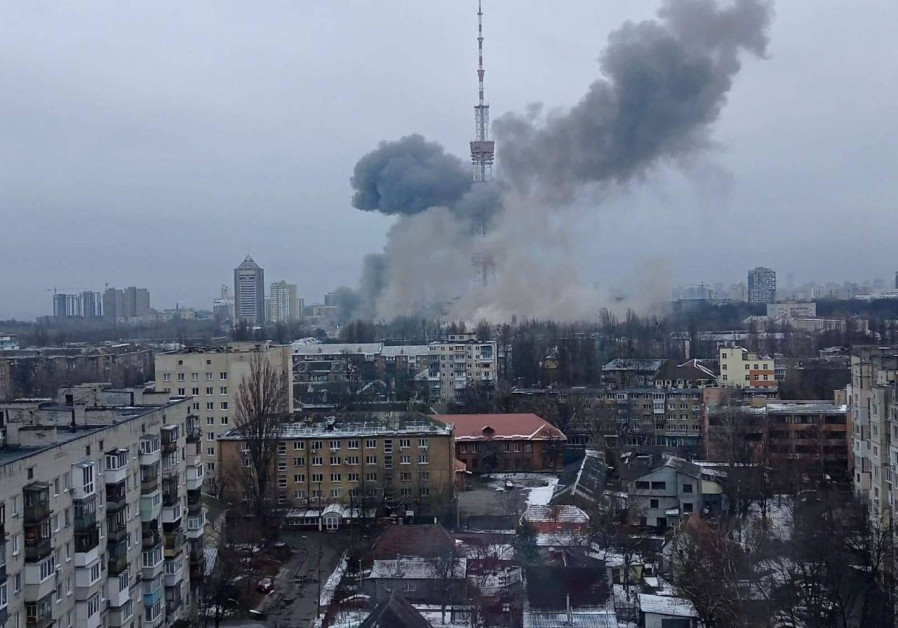Among the residents of Kyiv who remain in the Ukrainian capital, despite the approach of the Russian military forces trying to occupy it, is Paul Brodsky, a 50-year-old Israeli citizen who lives in the city.
"Getting out of here has become impossible," he told 103 FM. "We are trying to remain calm."
"We are trying to survive, we bought some food and drinks. Trying to remain calm," said Brodsky, who intends to fight if the Russians invade his area of residence. "We will fight, we will not give up."
"From what we see here, these Russian soldiers are really innocent; they do not understand why most of them came here – the young people, the children," Brodsky said regarding the possibility that he would have to fight a military force in a residential environment.
"You see? I do not think they will go and kill people and families," he told 103 FM, part of the Jerusalem Post group.
"For the first two days, at 4:30 in the morning, we woke up from the shelling," Brodsky said about the first days of fighting.

"You feel a kind of earthquake, you hear noises and alarms, sirens in the middle of the night," he said. Getting out of here has become impossible. For almost two days there was a curfew; it was forbidden to leave the house at all." Under the building, he said, there is a large shelter.
Brodsky explained that he did not leave the city because he did not believe that the fighting would reach as far as Kyiv.
"I did not believe it would happen," he said. "I know the mentality of such things; I would not think of such a scenario. There was an opportunity to go out but there was no place to go out together. We thought it would not happen at all."
But most of the 350 tenants in the building where he lives left in the first days of the war, leaving only a few dozen, Brodsky explained.
In the abandoned streets, a phenomenon of looting had developed, he said, and therefore he set up a property protection group. "We are four people guarding from around 19:00 in the evening. One is armed, the rest are walking around with flashlights and sticks," he recounted, "but there is looting."
Brodsky spoke of the growing appreciation for President Vladimir Zalansky during the crisis, who became a leader we did not expect at all.
"Everyone believed two and a half years ago when they elected him that he would change the situation in Ukraine. Unfortunately for all the voters, even the 73% of the country who supported him, he [remained] an actor, not controlling anything." On the contrary, he said that "the truth is, it seems, they controlled him more."
Although "a week ago, people would spit in his direction and wouldn't even listen to him," Brodsky said that now, support for him is growing.
